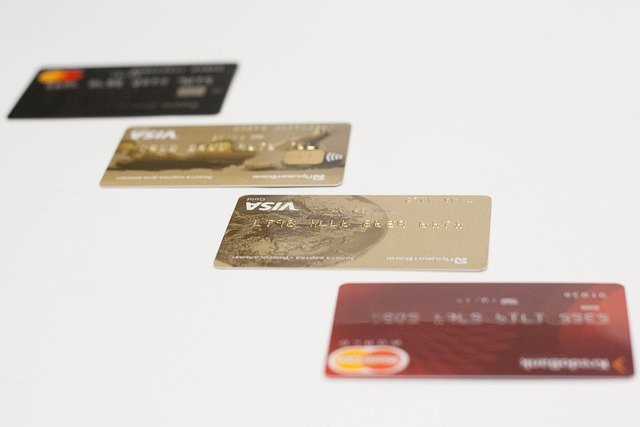Insightful Guide to Understanding Muslim Dating Dynamics in United Kingdom
Muslim dating has become a prevalent method in the United Kingdom for individuals seeking companionship in today's digital age. This guide provides an overview of how Muslim dating works, the various platforms available, and essential safety tips for users. Understanding the nuances of Muslim dating can enhance the experience and foster meaningful connections.

Muslim dating in the United Kingdom represents a unique intersection of religious traditions, cultural practices, and modern social dynamics. For the approximately 3.4 million Muslims living in the UK, finding compatible partners while honoring faith-based principles requires navigating a landscape that differs significantly from mainstream dating culture. This guide explores the nuances of Muslim dating in Britain, offering insights into platforms, approaches, and considerations for those seeking meaningful relationships within Islamic guidelines.
Understanding the Basics of Muslim Dating Platforms
Muslim dating platforms in the UK have evolved to address specific needs of the community. Unlike conventional dating apps, these platforms typically emphasize marriage-oriented relationships rather than casual dating. Many incorporate religious compatibility features, allowing users to specify their level of religious practice, sect affiliation, and cultural background. Popular platforms like Muzmatch, Salams (formerly known as Minder), and Pure Matrimony have gained traction among British Muslims by providing spaces where religious values are understood and respected.
These platforms often include profile verification processes to ensure authenticity and safety. Some implement features like “guardian involvement” options, reflecting traditional practices where family members may participate in the matchmaking process. The emphasis remains on creating meaningful connections with marriage potential, aligning with Islamic principles while adapting to the digital age.
Key Features to Consider When Using Dating Apps and Websites
When navigating Muslim dating platforms in the UK, several features merit particular attention. Privacy settings are paramount for many users who may wish to control who sees their profile information and photos. Many platforms offer discrete browsing options and photo protection features that align with Islamic modesty principles while still enabling meaningful connections.
Communication tools vary across platforms, with some offering chat functions only after mutual interest is established, similar to conventional dating apps. Others provide guided communication tools that help users discuss important topics like religious compatibility, family expectations, and future goals. Some platforms incorporate personality assessments based on Islamic values to suggest compatible matches.
Profile verification is another crucial feature, with many services implementing ID verification, social media confirmation, or even community references to ensure authenticity. This addresses safety concerns while building trust among users who are often seeking serious, marriage-oriented relationships.
Cultural Considerations in Muslim Dating
The British Muslim community encompasses diverse cultural backgrounds, including South Asian, Middle Eastern, African, and convert communities, each with distinct traditions influencing dating and marriage practices. Understanding these cultural nuances is essential for successful relationship building. For instance, South Asian Muslims might place greater emphasis on family involvement in the selection process, while others might adopt more independent approaches.
The balance between religious requirements and cultural traditions often creates unique dynamics. Many British Muslims distinguish between cultural practices and Islamic principles, seeking relationships that honor their faith while questioning traditions that may not have religious foundations. This has led to evolving perspectives on appropriate ways to meet potential partners, with many embracing digital platforms as acceptable modern alternatives to traditional matchmaking.
Intergenerational perspectives also play a significant role, with younger British Muslims often navigating between parental expectations and personal preferences. This generational bridge requires thoughtful communication and sometimes compromise when approaching dating and marriage.
Balancing Faith and Modern Dating Approaches
For many British Muslims, maintaining Islamic principles while dating presents both challenges and opportunities. Traditional Islamic guidelines emphasize avoiding seclusion between unmarried men and women and maintaining appropriate physical boundaries. Modern Muslim dating often incorporates these principles through practices like meeting in public places, group settings, or with family members present.
Many couples establish clear boundaries early in relationships regarding physical interaction, communication expectations, and the timeline toward marriage. Some choose to involve a third party such as a family member or religious leader as a “chaperone” during initial meetings, adapting traditional concepts to contemporary contexts.
The concept of “halal dating” has emerged as a framework that allows Muslims to get to know potential spouses while adhering to religious guidelines. This approach focuses on intentionality, transparency about marriage goals, appropriate settings for meetings, and maintaining Islamic boundaries throughout the process.
Safety Tips for Engaging in Muslim Dating Experiences
Safety remains paramount when using any dating platform or meeting potential partners. For Muslim daters in the UK, implementing specific safety practices can help protect both physical security and religious values. Always meet in public places for initial meetings, preferably during daylight hours in locations like cafes, restaurants, or community events. Inform trusted friends or family members about meeting details, including location and expected return time.
Verify identities before meetings when possible, through video calls or mutual connections. Be cautious about sharing personal information too quickly, including home addresses, workplace details, or financial information. Trust instincts about potential matches – if something feels concerning, it’s appropriate to step back and reassess.
Many Muslim dating platforms offer reporting features for inappropriate behavior. Using these tools helps maintain community standards and protects other users. Additionally, understanding the platform’s privacy policies regarding data usage and sharing is essential for maintaining personal security.
Community Resources and Support Networks
British Muslims seeking relationships can benefit from various community resources beyond dating platforms. Mosque-based matrimonial services continue to play important roles in many communities, with imams and community leaders facilitating introductions between compatible individuals and families. These services often provide structured approaches to meeting potential spouses in accordance with Islamic guidelines.
Muslim professional networks and social groups organize events where singles can meet in appropriate settings with shared activities or interests. Organizations like Islamic Circles, Muslim Professionals, and various university Islamic societies regularly host events ranging from casual social gatherings to explicit matrimonial meetings.
Pre-marital counseling services specifically designed for Muslim couples have become increasingly available across the UK. These services help couples explore compatibility on religious practice, family expectations, financial approaches, and other crucial aspects of married life before making commitments.
Understanding Muslim dating dynamics in the United Kingdom requires appreciating the balance between religious values, cultural traditions, and contemporary social practices. By approaching relationships with clear intentions, respect for Islamic principles, and openness to evolving practices, British Muslims continue to develop meaningful pathways to marriage that honor both faith and individual preferences.




